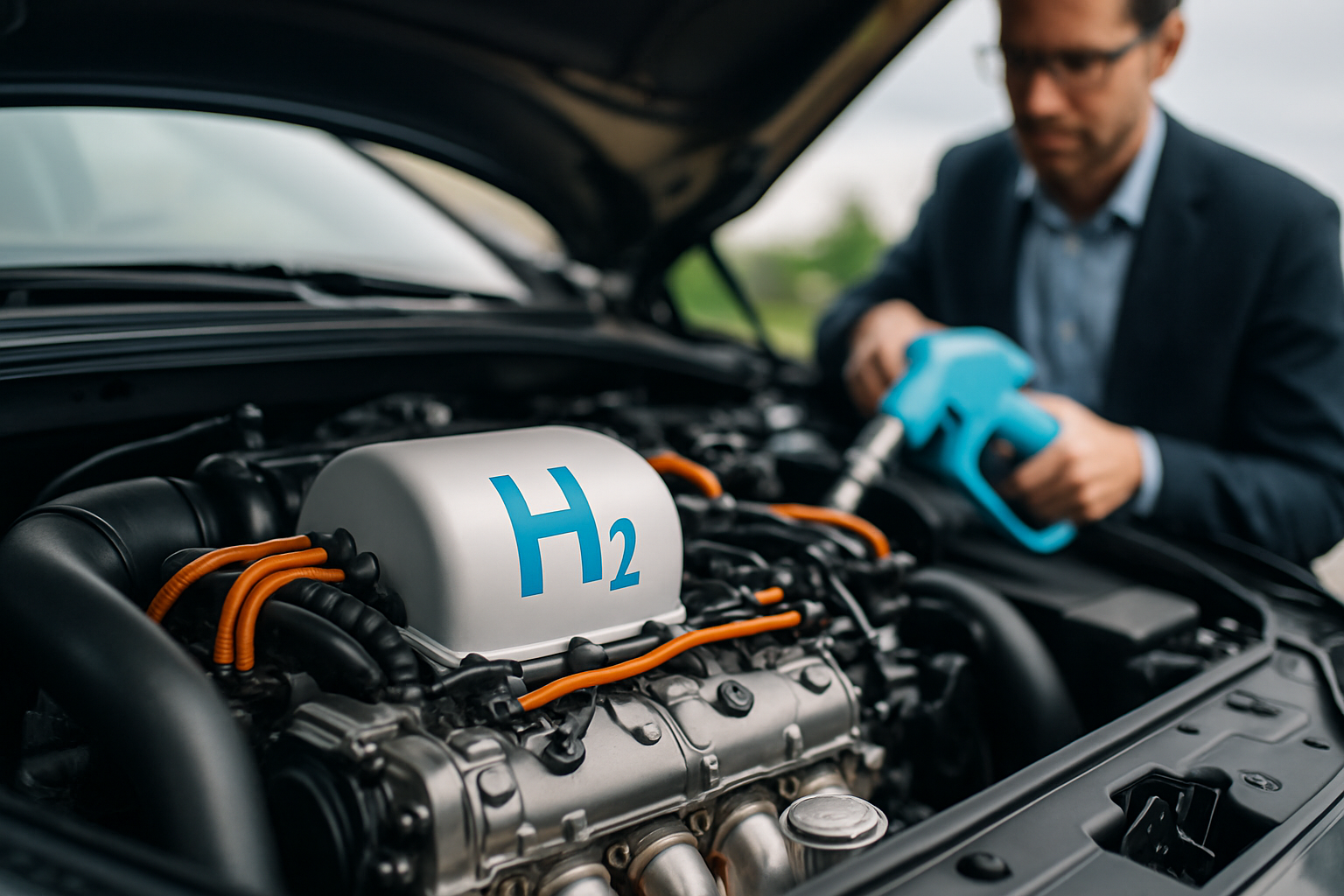Hydrogen Combustion Engines: The Next Frontier in Clean Propulsion
Imagine the rumble of a powerful engine, the thrill of acceleration, and the satisfaction of covering vast distances—all without a drop of fossil fuel or a gram of carbon dioxide emissions. This isn't a far-off dream, but a rapidly approaching reality with hydrogen combustion engines. As the automotive world races towards sustainability, this technology promises to blend the familiar feel of internal combustion with zero-emission driving, potentially revolutionizing how we think about clean transportation.

The concept isn’t entirely new—BMW experimented with hydrogen combustion in the early 2000s—but recent advancements have thrust it back into the spotlight. The primary appeal lies in its potential to offer a bridge between conventional engines and zero-emission vehicles, potentially easing the transition for both manufacturers and consumers.
How Hydrogen Combustion Engines Work
At its core, a hydrogen combustion engine operates similarly to a gasoline engine. Hydrogen is injected into the combustion chamber, mixed with air, and ignited by spark plugs. The resulting explosion drives the pistons, creating mechanical energy to power the vehicle.
However, the similarities end there. Hydrogen’s unique properties necessitate significant modifications to the engine design. For instance, hydrogen has a much wider flammability range than gasoline, requiring precise control over the air-fuel mixture. Additionally, its low density means that larger volumes of fuel must be injected to achieve the same energy output as gasoline.
The Environmental Promise
The environmental benefits of hydrogen combustion engines are hard to overstate. When burned, hydrogen produces only water vapor as a byproduct, making these engines true zero-emission power plants. This stands in stark contrast to even the cleanest gasoline engines, which still produce carbon dioxide and other pollutants.
Moreover, if the hydrogen is produced using renewable energy sources—a process known as green hydrogen production—the entire fuel cycle can be carbon-neutral. This holistic approach to emissions reduction is particularly appealing as the world grapples with the urgent need to decarbonize transportation.
Performance Potential
Far from being mere eco-friendly alternatives, hydrogen combustion engines have the potential to deliver exhilarating performance. Hydrogen’s high octane rating allows for higher compression ratios, potentially yielding more power and efficiency than traditional gasoline engines.
Furthermore, hydrogen engines can rev higher and respond more quickly to throttle inputs due to the fuel’s rapid flame speed. This characteristic could make hydrogen-powered vehicles particularly well-suited for performance applications, offering the instant response and high-revving nature prized by enthusiasts.
Challenges and Hurdles
Despite their promise, hydrogen combustion engines face significant challenges. The most pressing is the lack of hydrogen refueling infrastructure. Unlike electric vehicles, which can leverage existing power grids, hydrogen-powered cars require an entirely new network of fueling stations.
There are also technical hurdles to overcome. Hydrogen’s low energy density by volume means that fuel tanks must be larger and more robust than those for gasoline, impacting vehicle design and packaging. Additionally, the high temperatures involved in hydrogen combustion can lead to increased NOx emissions, a problem that engineers are actively working to solve through advanced combustion strategies and exhaust after-treatment systems.
The Road Ahead
As the automotive industry continues its march towards sustainability, hydrogen combustion engines offer an intriguing alternative path. They promise to combine the familiarity and performance of internal combustion with the environmental benefits of zero-emission driving.
Several major automakers, including Toyota and Mazda, have recently renewed their interest in this technology. These companies see hydrogen combustion as a way to preserve their expertise in engine manufacturing while meeting increasingly stringent emissions regulations.
The future of hydrogen combustion engines will likely depend on overcoming the infrastructure challenge and achieving cost parity with other zero-emission technologies. If these hurdles can be cleared, we might soon see a new generation of clean, powerful, and engaging vehicles that offer the best of both worlds—the thrill of internal combustion with the conscience of zero emissions.
As we stand on the brink of this potential automotive revolution, one thing is clear: the race to decarbonize transportation is far from over, and hydrogen combustion engines are emerging as a dark horse contender in this high-stakes competition.






